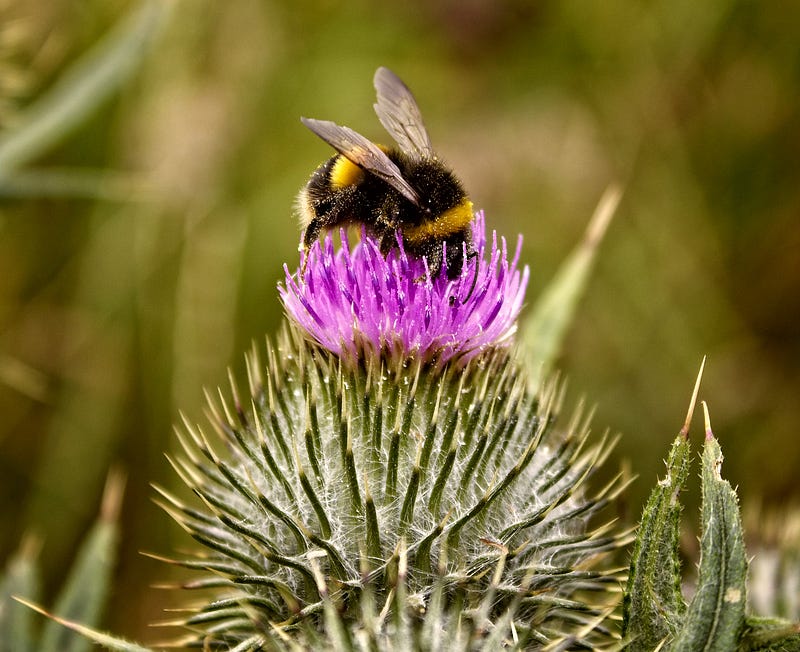Averting the Insect Crisis: A Review of Silent Earth
Written on
Understanding the Insect Crisis
As the world looks towards COP 15 for guidance on biological diversity, Dave Goulson's "Silent Earth" serves as a crucial resource for grasping the challenges facing our planet and how we can contribute to reversing them.

Insects often evoke strong feelings of fear and disgust in many people, yet they form the cornerstone of our ecosystem. They pollinate countless plants and serve as food for various animals, including birds, reptiles, and small mammals. Alarmingly, insect populations are plummeting, largely due to human activities. These alarming trends are the focal point of Goulson's compelling and candid book, "Silent Earth: Averting the Insect Apocalypse." A distinguished entomologist and biology professor at the University of Sussex, Goulson draws parallels to Rachel Carson's "Silent Spring," using scientific insights to underline the deep connection between human survival and insect well-being.
Exploring the Decline of Insects
Despite Carson's powerful critique of pesticide use in 1962, the situation remains dire. Goulson's 328-page work emphasizes the alarming decline of global insect numbers—essential for maintaining ecological balance. He references a multitude of scientific studies outlining the root causes of this decline, including habitat destruction, industrial agriculture, pesticide use, and climate change, while also providing actionable strategies for individuals, particularly gardeners, to assist in insect recovery.
The decline of insects is stark, with some estimates suggesting a reduction of up to 75%. This stark reality is evidenced by the absence of "bug spatter" on our vehicles after long drives, a phenomenon that many, including avid birders, seem to overlook. This disconnect stems from two cognitive biases: shifting baselines, where we mistakenly accept the current state of nature as normal, and a form of psychological gaslighting that minimizes the changes we observe.
Language Loss and Its Consequences
Goulson points out a troubling trend in our language, with the Oxford Junior Dictionary eliminating terms related to common wildlife. He notes the exclusion of words like "acorn" and "kingfisher," lamenting that such losses contribute to a disconnect from nature. The names of living beings carry significance; losing these names can render these creatures invisible to us.
Pollination and Its Critical Role
One of the most vital roles insects play is in pollination. An astounding 87% of plant species, including 75% of our food crops, depend on insect pollinators. While many recognize the contributions of honeybees and bumblebees, a plethora of other insects—including butterflies, moths, and beetles—also play essential, albeit less visible, roles. Without them, we could face the daunting task of hand-pollinating crops or relying solely on wind-pollinated plants.
Insects also contribute to soil health and natural pest control, reducing our reliance on chemical fertilizers and pesticides. Goulson’s book includes a foreboding chapter titled "A View from the Future," where he uses narrative to encapsulate the scientific evidence and stresses the interconnectedness of various ecological issues.
A Call to Action
Despite the severity of the crisis, Goulson believes recovery is possible due to the rapid reproductive rates of insects. He encourages actions such as reducing lawn areas in favor of wildflowers, allowing garden corners to grow untamed, and promoting native plants to attract beneficial insects. He also advocates for minimizing pesticide use and creating "insect hotels" to support local insect populations.
In conclusion, Goulson's book presents a well-researched and impassioned argument that is hard to ignore. His narrative invites readers to appreciate the complexities of these ecological issues. As we confront the ecological damage we've inflicted, Goulson offers hope, urging us to recognize and respect the vital roles insects play in our world.
The first video titled "Silent Earth: Averting the Insect Apocalypse with Dave Goulson" expands on the themes in Goulson's book, discussing the urgent need for action to protect our planet's vital insect populations.
The second video, "A Short Extract from My New Book: Silent Earth," provides a glimpse into Goulson's arguments about the insect crisis, enhancing the understanding of the book's critical messages.